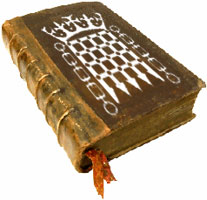
This week saw the first meeting of the All-Party Parliamentary Group (APPG) on Publishing at the UK Houses of Parliament. The APPG was set up last month, largely on the instigation of Sonny Leong, who is chairman of the IPG, a body which does an excellent job of representing independent publishers in the UK (full disclosure: my employer is a member, but that’s a personal opinion). It’s great that indie publishers will have such a voice in the house, although the APPG was set up to communicate with the industry as a whole.
The chairman of the APPG is Gordon Banks MP, a staunch Labourite whose record speaks for itself, although his background in the building trade doesn’t imply he has much experience in the area. He does however “like reading a wide range of books.” The Secretary is Gisela Stuart MP, another Labour MP with a similarly loyal record. She was a former Bookseller apprentice and Deputy Director of the London Book Fair, so should have a good understanding of the trade.
This is all important because the great changes coming to publishing are undoubtedly going to be accompanied by a fair amount of legislation – there’s already plenty of lobbying going on with things like copyright term extension, which was rejected by the Gowers Review back in December, but is bound to raise its ugly head again soon.
It’s depressing then, that one of the main items on the agenda – as reported by Publishing News, the only source I have for this – was territorial copyright (there were also some worrying turns of phrase about India’s ‘sclerotic’ courts and the need for ‘show trials’ – but even I am not going to come out on the side of the pirates). Territorial copyright refers to the practice of selling book rights in different territories, so that, for example, an author is published by Penguin in the UK, Simon & Schuster in the US, Gallimard in France and so on…
This practice means that publishers are protected in their own market, and can make pots of additional revenue selling rights to titles they own outright to other territories. This is a major moneyspinner, and it’s increasingly threatened by globalisation. A case in point is Amazon UK, which is regularly a focus of publisher’s ire for selling US editions, either directly or via third parties, to the UK market. The is, essentially, illegal – and it makes a mockery of publishers’ attempts to lock down their home markets.
Something clearly needs to be done – but parliamentary involvement just makes me nervous. There will still be separate foreign language editions of books for obvious reasons, and they’ll probably be done by diferent publishers, with contracts all round – but who thinks they can enforce territorial rights for ebooks? The internet has already made common-language borders irrelevant in most spheres; it’s going to happen here. Ill-conceived legislation could be a disaster. The bald statement that “without copyright, publishers would have nothing to sell at London or Frankfurt” is deeply misleading, but sounds like just the thing to get MPs geed up and making speeches.
Still, there was some mention of digitisation, and proof that the UK book industry is in rude health, having grown from £4,984m to £9,057m in its contribution to the UK economy in the last fifteen years according to a written answer from the Chancellor, so I’ll stop complaining now. But I will keep an eye out for the next meeting in June. Anyone know how to find written records of parliamentary group meetings?
Comments are closed. Feel free to email if you have something to say, or leave a trackback from your own site.